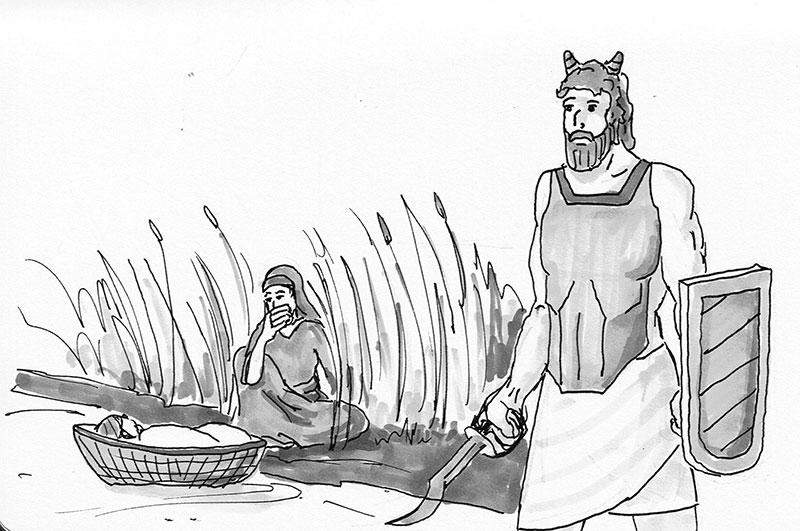FROM THE FATHERS
It was revealed to me that those things are good which yet are corrupted which neither if they were supremely good nor unless they were good could be corrupted. Ah, curse you! That’s saint Augustine.
—Why will you jews not accept our culture, our religion and our language? You are a tribe of nomad herdsmen: we are a mighty people. You have no cities nor no wealth: our cities are hives of humanity and our galleys, trireme and quadrireme, laden with all manner merchandise furrow the waters of the known globe. You have but emerged from primitive conditions: we have a literature, a priesthood, an agelong history and a polity.
Nile.
Child, man, effigy.
By the Nilebank the babemaries kneel, cradle of bulrushes: a man supple in combat: stonehorned, stonebearded, heart of stone.
—You pray to a local and obscure idol: our temples, majestic and mysterious, are the abodes of Isis and Osiris, of Horus and Ammon Ra. Yours serfdom, awe and humbleness: ours thunder and the seas. Israel is weak and few are her children: Egypt is an host and terrible are her arms. Vagrants and daylabourers are you called: the world trembles at our name.
A dumb belch of hunger cleft his speech. He lifted his voice above it boldly:
—But, ladies and gentlemen, had the youthful Moses listened to and accepted that view of life, had he bowed his head and bowed his will and bowed his spirit before that arrogant admonition he would never have brought the chosen people out of their house of bondage, nor followed the pillar of the cloud by day. He would never have spoken with the Eternal amid lightnings on Sinai’s mountaintop nor ever have come down with the light of inspiration shining in his countenance and bearing in his arms the tables of the law, graven in the language of the outlaw.
He ceased and looked at them, enjoying a silence.
annotation:
Joyce is obviously making a point about the preservation of Irish culture through preservation of the language. The use of Moses is another metaphor Parnell. (source)
I find it interesting that in considering the metaphor Stephen is thinking of Moses more as the sculpture than as a man. This seems to reflect Joyce’s own struggle to reconcile his relationship to Parnell.

